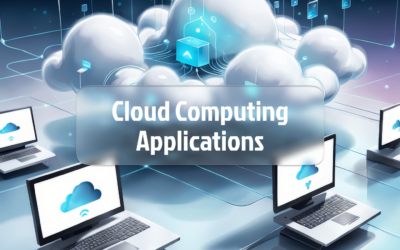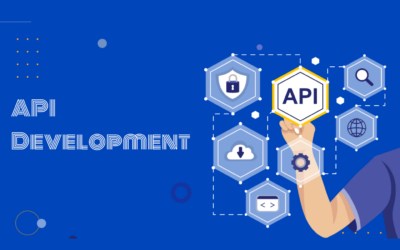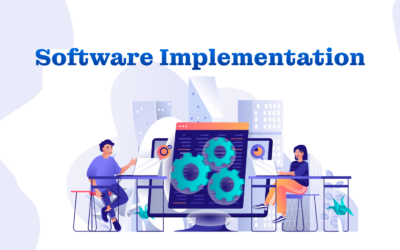How Cloud Computing is Revolutionizing the Healthcare

Introduction:
In recent years, cloud computing has emerged as a transformative technology across various industries. One sector where its impact has been particularly profound is healthcare. With the ever-increasing volumes of patient data, the need for efficient and secure storage, analysis, and sharing of information has become paramount. Cloud computing has stepped in to address these challenges, revolutionizing the healthcare industry in the process. In this blog, we will explore eight key benefits & Use cases of cloud computing in healthcare.
Benefits of cloud computing in Healthcare:
1. Enhanced Data Security and Privacy:
Protecting patient data is of utmost importance in the healthcare industry. Cloud computing offers robust security measures, including encryption, access controls, and regular backups. By storing data on secure cloud platforms, healthcare providers can significantly reduce the risk of data breaches and unauthorized access. Furthermore, cloud providers adhere to strict compliance standards, such as HIPAA, ensuring patient privacy is maintained.
2. Scalability and Flexibility:
Cloud computing enables healthcare organizations to scale their IT infrastructure quickly and efficiently. As data storage and processing power demand increases, cloud services can expand to accommodate these needs. This flexibility allows healthcare providers to adapt to changing circumstances and handle sudden surges in data without the need for significant upfront investments in hardware or software.
3. Improved Collaboration and Communication:
Cloud-based collaboration tools have transformed the way healthcare professionals work together. With cloud platforms, healthcare providers can securely share patient information, collaborate on treatment plans, and consult with specialists across different locations. Real-time access to patient data and streamlined communication channels lead to more efficient decision-making and improved patient outcomes.
4. Cost Savings:
Adopting cloud computing can result in significant cost savings for healthcare organizations. Instead of investing in expensive on-premises infrastructure, healthcare providers can leverage the pay-as-you-go model offered by cloud service providers. This eliminates the need for upfront capital expenditures and reduces ongoing maintenance costs. Additionally, cloud computing reduces energy consumption and space requirements, further lowering operational expenses.
5. Increased Data Accessibility:
Cloud computing makes patient data accessible from anywhere, at any time, and on any device. This accessibility is particularly beneficial for telemedicine, remote patient monitoring, and mobile healthcare applications. Physicians and caregivers can access patient records, test results, and medical imaging files seamlessly, enabling more timely and informed decision-making. Patients themselves can also access their medical records securely, empowering them to actively participate in their healthcare management.
6. Advanced-Data Analytics and Machine Learning:
Cloud computing provides healthcare organizations with the computational power necessary to analyze vast amounts of patient data. By leveraging advanced analytics and machine learning algorithms, healthcare providers can gain valuable insights into population health trends, identify disease patterns, and personalize treatment plans. These data-driven approaches lead to more accurate diagnoses, proactive interventions, and improved patient outcomes.
7. Disaster Recovery and Business Continuity:
The healthcare industry cannot afford downtime, as even a brief interruption in services can have severe consequences. Cloud computing offers robust disaster recovery and business continuity solutions. By storing data in geographically diverse data centres, healthcare organizations can quickly recover from system failures, natural disasters, or other unforeseen events. Cloud-based backup systems ensure that patient data remains protected and accessible, even in the face of disruptions.
8. Streamlined Compliance and Regulation:
Complying with healthcare regulations, such as HIPAA, can be complex and time-consuming. Cloud service providers specialize in meeting industry-specific compliance requirements and can help healthcare organizations navigate these challenges. By partnering with a cloud provider with expertise in healthcare compliance, organizations can focus on delivering quality care while maintaining regulatory adherence.
Use Cases of Cloud Computing in the Healthcare Industry:
1. Electronic Health Records (EHR) Management:
Cloud computing enables healthcare organizations to store and manage electronic health records securely. By moving EHRs to the cloud, healthcare providers can centralize patient data, making it easily accessible to authorized personnel across different departments and locations. Cloud-based EHR systems streamline workflows, improve data accuracy, and enhance the overall quality of patient care.
2. Medical Imaging and Diagnostic Services:
Cloud-based storage and analysis of medical imaging data have transformed diagnostic services. Healthcare providers can store large volumes of medical images, such as X-rays, CT scans, and MRIs, in the cloud. This allows radiologists and other specialists to access and interpret images remotely, leading to faster diagnoses and reduced patient wait times. Cloud-based image analysis tools also enable automated processing and advanced image recognition techniques for more accurate diagnostics.
3. Telemedicine and Remote Patient Monitoring:
Cloud computing plays a crucial role in facilitating telemedicine and remote patient monitoring. Through cloud-based platforms, healthcare providers can securely communicate with patients, conduct virtual consultations, and monitor patient health remotely. Cloud-enabled telemedicine solutions enable real-time video conferencing, remote data collection from medical devices, and seamless integration with EHR systems, ensuring continuity of care regardless of geographical distance.
4. Research and Data Analytics:
Cloud computing empowers healthcare researchers to analyze large datasets and derive meaningful insights. Cloud-based data analytics platforms provide the necessary computational resources for analyzing genomic data, clinical trial data, and population health data. Researchers can leverage cloud-based machine learning and artificial intelligence tools to identify disease patterns, predict treatment outcomes, and develop personalized medicine approaches.
5. Health Information Exchange (HIE):
Cloud-based health information exchange platforms allow secure sharing of patient data between different healthcare organizations and systems. Instead of relying on physical media or complex data-sharing protocols, cloud-based HIEs enable real-time data exchange, ensuring that healthcare providers have access to comprehensive patient information regardless of where the data originates. This promotes seamless care coordination, reduces medical errors, and improves patient outcomes.
6. Disaster Recovery and Business Continuity:
Cloud computing offers robust disaster recovery and business continuity solutions for healthcare organizations. By replicating data across multiple geographically diverse cloud data centres, healthcare providers can quickly restore critical systems and access patient data in the event of a disaster or system failure. Cloud-based backup and recovery services ensure that patient records and operational data remain protected and available, minimizing downtime and ensuring continuity of care.
7. Patient Engagement and Education:
Cloud-based patient portals and mobile applications enhance patient engagement and education. Through these platforms, patients can securely access their medical records, view test results, schedule appointments, and communicate with their healthcare providers. Cloud-based patient education tools provide personalized health information, enabling patients to actively participate in their care and make informed decisions about their health.
8. Health IoT and Wearables:
Cloud computing is instrumental in managing the vast amounts of data generated by health Internet of Things (IoT) devices and wearables. These devices collect real-time patient data, such as heart rate, blood pressure, and glucose levels, and transmit it to the cloud for analysis and monitoring. Cloud-based IoT platforms enable healthcare providers to aggregate, analyze, and visualize this data, enabling early detection of health issues, remote patient monitoring, and proactive interventions.
Conclusion:
Cloud computing has undoubtedly revolutionized the healthcare industry, offering a range of benefits that enhance patient care, improve operational efficiency, and ensure data security. It revolutionized the industry by providing scalable and secure solutions for managing patient data, enabling telemedicine, facilitating research, and ensuring business continuity. By leveraging cloud technologies, healthcare organizations can deliver better patient care, enhance collaboration, and drive innovation in the pursuit of improved health outcomes.
Are you looking for IT Services such as Web design and Development, Mobile App Development, Digital Marketing Services and more? Connect Stridefuture Technology, which helps to meet your requirements.
{StrideFuture Technology, a full-service company specializing in Software Solutions and Consultancy services. We specialize in Personal, Business, IT Services, Web design and Development, Mobile App Development, Digital Marketing Services, and much more you can dream Virtually with us! Reach out for more service at StrideFuture Technology.}









